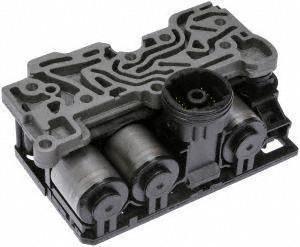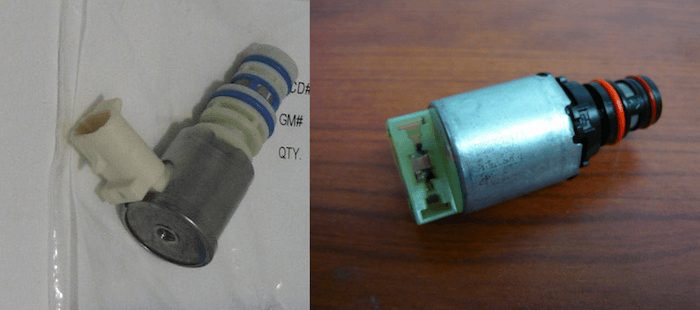
P2706 Shift Solenoid F Malfunction
Content
- P2706 Shift Solenoid F Malfunction
- OBD-II DTC Datasheet
- What does this mean?
- What is the severity of this DTC?
- What are some of the symptoms of the code?
- What are some of the common causes for the code?
- What are some steps to troubleshoot the P2706?
- What are the standard ways to fix this code?
- Related DTC discussions
- Need more help with the P2706 code?
P2706 Shift Solenoid F Malfunction
OBD-II DTC Datasheet
Shift solenoid valve F malfunction
What does this mean?
This is a Generic Transmission Diagnostic Trouble Code (DTC) and is commonly applied to OBD-II vehicles equipped with an automatic transmission.
This may include, but is not limited to, vehicles from Chrysler, Ford, Dodge, Hyundai, Kia, Ram, Lexus, Toyota, Mazda, Honda, VW, etc. Although general, exact repair steps may vary by year, brand and models. and transmission configuration.
Most automatic transmissions include several shift solenoids, depending on the number of gears inside. The trouble codes associated with this "F" solenoid are codes P2706, P2707, P2708, P2709 and P2710 based on a specific fault that alerts the PCM to set the code and illuminate the Check Engine light. If you have an overdrive warning light or other transmission warning light, it may also be on.
The shift solenoid valve circuit is for the PCM to control the shift solenoids in order to control the movement of fluid between the different hydraulic circuits and change the transmission ratio at the appropriate time. This process maximizes the level of engine performance at the lowest possible rpm.
Automatic transmissions use bands and clutches to shift gears, and this is achieved by ensuring that the fluid pressure is in the right place at the right time. Transmission solenoids are responsible for opening or closing valves in the valve body, allowing transmission fluid to flow to the clutches and belts for smooth shifting of the transmission as the engine accelerates.
When the powertrain control module (PCM) detects an abnormality in the shift solenoid "F" circuit, different codes may be set depending on the specific vehicle, transmission and the number of gears included in the specific automatic transmission. In this case, DTC P2706 OBD-II is associated with a general fault in the Shift Solenoid F circuit.
Example of switching solenoids: 
What is the severity of this DTC?
The severity of this code usually starts at moderate, but can quickly progress to a more serious level if not corrected in a timely manner.
What are some of the symptoms of the code?
Symptoms of a P2706 trouble code may include:
- Slipping transmission
- Overheating of the transmission
- Transmission stuck in gear
- Reduced fuel economy
- Possible misfire-like symptoms
- The car goes into emergency mode
- Check Engine light is on
What are some of the common causes for the code?
Reasons for this P2706 transfer code may include:
- Insufficient fluid level
- Dirty or contaminated liquid
- Dirty or clogged transmission filter
- Defective transmission valve body
- Limited hydraulic passages
- The transmission has an internal fault.
- Defective gear shift solenoid
- Corroded or damaged connector
- Faulty or damaged wiring
- Defective PCM
What are some steps to troubleshoot the P2706?
Before beginning the troubleshooting process for any problem, you should review the vehicle-specific Technical Service Bulletins (TSB) by year, model and transmission. In some cases, this can save you a lot of time in the long run by pointing you in the right direction. You should also check the vehicle records to check when the filter and fluid were last changed, if possible.
Checking fluid and wiring
The first step is to make sure the fluid level is correct and check the condition of the fluid for contamination. A thorough visual inspection should then be carried out to check the associated wiring for obvious defects such as scratches, abrasions, exposed wires, or burn marks.
Next, you should check the connectors and connections for safety, corrosion and damage to the contacts. This process should include all wiring and connectors to the transmission solenoids, transmission pump, and PCM. Depending on your configuration, you need to check the transmission link for security and binding issues.
Advanced steps
The additional steps become very vehicle specific and require appropriate advanced equipment to be performed accurately. These procedures require a digital multimeter and vehicle-specific technical reference documents. Voltage requirements will depend on the specific year and vehicle model. You must follow the specific troubleshooting chart for your vehicle.
Continuity checks
Continuity checks should always be performed with circuit power disconnected and normal wiring and connection readings should be 0 ohms of resistance unless otherwise specified in the datasheet. Resistance or no continuity indicates faulty wiring that is open or shorted and requires repair or replacement.
What are the standard ways to fix this code?
- Replacing fluid and filter
- Repair or replace the defective shift solenoid.
- Repair or replace a faulty transmission valve body
- Repair or replace a faulty transmission
- Flushing transmission for clean passages
- Cleaning connectors from corrosion
- Repair or replacement of wiring
- Flashing or replacing PCM
Hopefully the information in this article has helped point you in the right direction to troubleshoot the shift solenoid circuit DTC problem. This article is for informational purposes only and specific technical data and service bulletins for your vehicle should always take priority.
Related DTC discussions
- 2005 Dodge Dakota Service 4Whl Drive Light P0700 P2706I was chasing several problems in my 2005 Dodge Dakota SLT with a V8 engine. The new battery eliminated several codes that popped up at once. After starting and driving 3-4 miles, the SVC 4WD light comes on momentarily and may come back a couple more times for the rest of my trip. Periodically…
Need more help with the P2706 code?
If you still need help with DTC P2706, post a question in the comments below this article.
NOTE. This information is provided for informational purposes only. It is not intended to be used as a repair recommendation and we are not responsible for any action you take on any vehicle. All information on this site is protected by copyright.